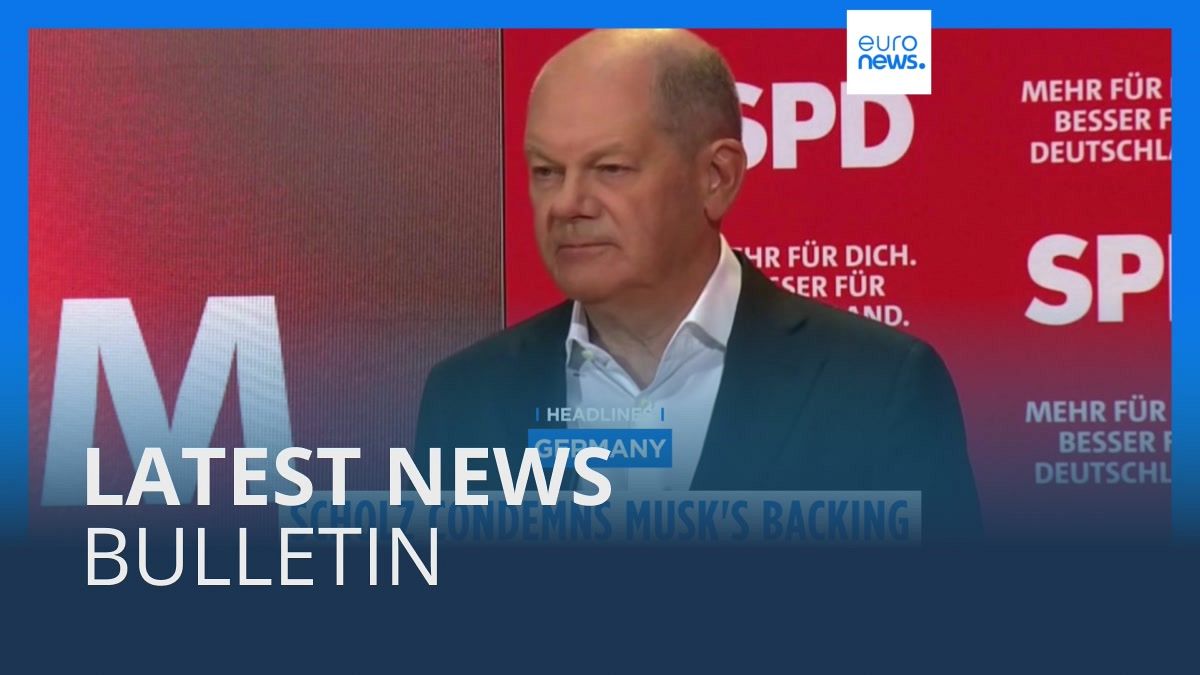Romania’s pro-EU parties hold off far right in parliamentary vote, early results show
Although the center left is leading, the strong showing of the far right is significant ahead of the presidency vote on Dec. 8.
BUCHAREST — Romania’s pro-EU and pro-NATO parties appeared to be holding off the far right in a parliamentary election on Sunday, but the strength of the radical vote suggested that an ultranationalist, pro-Russian candidate could still win the presidency next week.
Romania was plunged into one of its most intense crises since the fall of Communism when Călin Georgescu, a virtually unknown admirer of Russian President Vladimir Putin, won the first round of elections for the important post of president Nov. 24, partly on the back of a wildly successful TikTok campaign.
The initial signals on Sunday night — from exit polls and early results — were that the traditional political establishment would keep control of parliament, holding off a far-right surge.
The center-left Social Democratic Party (PSD) of Prime Minister Marcel Ciolacu looked set to secure about a quarter of the vote, beating the far-right Alliance for the Union of Romanians (AUR) into second place with just under 20 percent.
Ciolacu hailed the strong showing by his party as evidence that the country of 19 million could stick to its pro-EU trajectory: “It’s an important signal Romanians sent to the political class: to continue developing the country with European money, but at the same time to protect our identity, national values and faith.”
To govern, the PSD will have to form a coalition that might include the center-right National Liberal Party (PNL), its current governing partner, along with others.
When it comes to the presidency the picture is more complex, as neither the PSD nor PNL has qualified for the second round.
Instead, it has fallen to the liberal Elena Lasconi, leader of the reformist Save Romania Union (USR), to go head-to-head with Georgescu in the second round of the presidential vote on Dec. 8.
On its own, the USR — with one exit poll suggesting support of about 15.5 percent, but early results suggesting a far lower figure — appears to trail three far-right parties by some distance. In addition to AUR’s support of just under 20 percent on the far right, polls and early results showed another 10 percent to 12 percent going to two smaller hard-right parties.
Much will therefore depend on whom PSD and PNL voters support next Sunday.

One big potential political deal could see Lasconi’s USR team up with Ciolacu’s PSD: She would help him form a majority in parliament, while he would back her for president. Lasconi, however, might have problems swallowing such a toxic pact, given that it would tie her to a traditional establishment long tarnished by cronyism and corruption.
Lasconi has been holding her cards close to her chest until the full results come in, and has confined her election remarks to warning that Georgescu could pitch the country back under Russia’s thrall, noting that Moscow has “never done anything good” for Romania.
“May God bless Romania in the EU and NATO,” she said. “We, united, can do miracles. If we are united, the Russian bots on TikTok cannot destroy our democracy.”
AUR leader George Simion said he didn’t believe an exit poll showing his party in only second place, and suggested far-right parties had performed better than shown.
“Today the Romanian people voted massively for sovereigntist forces and even more [for] what we wanted since AUR’s founding exactly 5 years ago: that PSD and the PNL are taken out of a governing majority by Romanians’ vote.”
The Democratic Alliance of Hungarians in Romania (UDMR), a center-right, pro-EU party, also appears to have increased its support. UDMR had just under 10 percent of the votes with two-thirds of precincts reporting results, up from roughly 6 percent in the last two parliamentary election cycles.
UDMR leader Hunor Kelemen said the party data showed higher turnout among middle-aged and elderly people, who he said remember the years before 2000, marked by anti-Hungarian policies, “and do not want the trend to shift towards diminishing their rights.”
The massive potential curveball in this Romanian electoral cycle concerns the Constitutional Court, which ordered a ballot recount for the first round of the presidential election following an allegation of fraud from one of the 13 candidates, European Parliamentarian Cristian Terheș, who obtained about 1 percent of the vote.
The court will meet on Monday to decide whether to annul the first round of the presidential election. If it does so, the entire presidential contest would likely have to be rescheduled to mid- and late December.
Such an annulment would pour fuel on the country’s political blaze as it would harden suspicions that Romania’s traditional ruling parties — PSD and PNL — are trying to manipulate the vote to give themselves a second crack at the presidency.
This is a developing story and has been updated. Csongor Körömi contributed reporting.
What's Your Reaction?


















































